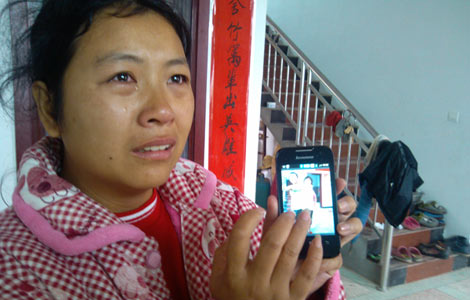Rwanda's role in connecting Africa
Updated: 2013-11-04 00:53
(China Daily)
|
||||||||
This is already my third visit to Kigali, the capital of Rwanda, in the past year. Rwanda itself is a relatively small country with few natural resources and poor economic ties with the outside world. As such, one could argue that there is little here to write about.
However, the reason I have been here more often than to any of the larger African nations is that its national strategy has turned it into a center for international conferences, where many of the future goals and perspectives of the continent are hammered out. In that respect, it has something in common with Addis Ababa.
Rwanda, known as "the country of a thousand hills", is far inland from the eastern coast of Africa. Its landlocked geography has combined with a lack of natural resources to limit its development, and it still lacks a large-scale manufacturing base, relying instead mostly on subsistence agriculture.
The genocide of 1994 further devastated the country, bringing the economy to a virtual standstill.
However, since then, the country has found a way to grow, making use of its strategic location in the heart of the continent to become a conference hub for the Eastern African Community and Africa as a whole.
Rwanda's gradual rebirth also depends on investment in the information and communications technology (ICT) sector, helping to connect and integrate the region.
That's why I'm here in the capital, Kigali again, to report on the Transform Africa Summit, which aims to assess the progress made in the African ICT sector over the past six years and set goals for the future.
The progress in ICT across the continent as a whole is clear from the figures, as demonstrated by Gilbert Mbesherubusa of the African Development Bank.
Mbesherubusa, vice-president of operations for infrastructure, private sector and regional integration, said the number of cellphone SIM cards sold on the continent has increased almost threefold since 2007 to 810 million in 2013.
There are around 116 million mobile broadband subscribers in Africa, he said, representing a penetration rate of about 11 percent of the population, compared with just 0.35 percent in 2007.
The boom in ICT has greatly affected the way Africans conduct daily life, including education, business and politics. People can now transfer, withdraw or deposit money electronically, using a cellphone payment system called M-Pesa. The system provides a link between people in remote areas such as the Masai Mara and big cities such as Nairobi, capital of Kenya.
Andrew Rugege, regional director for Africa at the International Telecommunication Union, told me that China has played a significant role in this development.
"Of course, the most fundamental element is the related infrastructure construction, in which China has significantly invested," he said. "All the networks and related technology have been brought in by renowned Chinese firms, including Huawei and ZTE.
"Affordability is another important factor in terms of the future development of ICT, and China has done very well in bringing affordable products to Africa," he said.
But Rugege also says that Huawei and ZTE are not enough, and Africa needs more innovative, high-quality ICT companies to get involved.
Many small and medium-sized ICT firms from China have overlooked the potential of the African market and downplayed its capacity. And in some cases, the potential for doing business is huge.
For example, one medium-sized Chinese company focusing on Internet cloud technology has identified an opportunity to supply services to African transnational corporations, as well as provide infrastructure for integration throughout the region.
In addition, many participants at the summit in Kigali stressed that Africa is eager to cooperate with the rest of the world to enhance its capabilities in ICT, including developing homegrown talent.
Carnegie Mellon University, a leading research institution for information technology and engineering in the United States, has established a campus in Kigali. It is the first institution of its kind in eastern Africa, offering master's programs in ICT and related subjects, with the aim of developing Africa's ICT talent.
Meanwhile, China's contribution mostly consists of accepting African students to study computer science and information technology in China, although it has made significant progress in this field and created a constructive environment for ICT industry and education.
Contact the writer at lilianxing@chinadaily.com.cn

 New York City Marathon concludes in chills
New York City Marathon concludes in chills
 Japan's policies questioned
Japan's policies questioned
 Transit policy a hit in Guangzhou
Transit policy a hit in Guangzhou
 Reform roadmap before key meeting
Reform roadmap before key meeting
 Kenya enhances security as tourists flock to see eclipse
Kenya enhances security as tourists flock to see eclipse
 Man confesses to killing 3 children: authorities
Man confesses to killing 3 children: authorities
 Run away from Beijing's gray skies
Run away from Beijing's gray skies
 LA airport shooting suspect charged with murder
LA airport shooting suspect charged with murder
Most Viewed
Editor's Picks

|

|

|

|

|

|
Today's Top News
Cross-Straits progress discussed
Progress in SARS study
How China can avoid an “economic hard landing”
3-D scanners and waves: Innovation in spotlight
Kerry: US won't allow attacks on Mideast allies
Beijing plans to ratchet up promotion of visa-free stays
Premier Li seeks point of balance
Reform roadmap before key meeting
US Weekly

|

|








